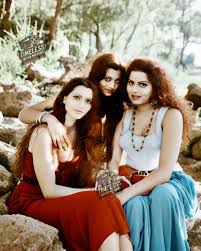Behind the Lens: Unveiling the Secrets of Timeless Bollywood Thriller Classics
Bollywood has always known how to keep you on the edge of your seat and an edge of your heart, mixing suspense, music and melodrama and giving a film-going nation some of the most thrilling moments in the history of movies. But what, exactly, makes a thriller timeless? It’s not just the absorbing stories or indelible performances it’s also the other stories that haven’t been told behind the camera. This story takes you deeper into the making of some of Bollywood’s most influential thriller classics, showcasing the painstaking craft, daring innovation and unknown tales that contributed to turning these films into genre standards.
The Golden Age of Bollywood Thrillers (1950s–1980s)
1. The Emergence of Suspense in Indian Cinema
The 1950s to 1980s witnessed a surge in suspense-driven storytelling, with filmmakers like Vijay Anand and Raj Khosla pioneering techniques that drew inspiration from film noir and Hitchcockian thrillers. Films such as Jewel Thief (1967) and Teesri Manzil (1966) set the tone for psychological thrillers in India.
Behind the Scenes Trivia: There was great secrecy during Jewel Thief’s making. Scripts were kept under lock and key, and the nature of the climax was hidden even from the leading actors to keep the secret. For the climactic revelation, director Vijay Anand made the actors react on the spot which resulted in genuine reactions adding to the thrill of the revelation.
2. Cinematic Techniques that Broke Ground
In this era, innovations in cinematography and editing transformed how thrillers were experienced. The use of dolly zooms, silhouette lighting, and suspenseful background scores became trademarks.
Technical Trivia: In Teesri Manzil, R.D. Burman’s pulsating background score played a crucial role in building suspense. The film’s editing rhythm was reportedly matched to the beats of the music, making it one of Bollywood’s earliest examples of audio-synchronized storytelling.
1990s: Rise of Psychological Thrillers and Genre Fusion
1. The Shift Towards Grit and Complexity
The 90s brought a shift towards darker, more complex narratives. Movies like Gupt (1997) and Baazi (1995) incorporated psychological depth and socio-political layers.
Set Secrets: Gupt‘s twist ending was kept so secret that dummy scripts were circulated during production. Bobby Deol reportedly only learned the true identity of the killer during final shooting days, adding genuine tension to his performance.
2. Incorporation of Western Influences
Directors began infusing Bollywood thrillers with Hollywood-style action and narrative structures, creating a hybrid appeal.
Behind the Lens: In Baazi, Aamir Khan trained with actual police units to lend authenticity to his role. Director Ashutosh Gowariker insisted on rehearsals with real weapons and tactical gear, adding realism to the sequences.
2000s Onwards: Thrillers with Social Commentary and High-Tech Aesthetics
1. Sophistication in Storytelling
The 21st century ushered in a new era of thriller films like Kahaani (2012), Talaash (2012), and Drishyam (2015) that combined suspense with social themes and emotional depth.
Hidden Narrative Work: Sujoy Ghosh, the director of Kahaani, constructed the entire narrative around Kolkata’s Durga Puja to symbolize the power and wrath of the protagonist. Much of the film was shot guerrilla-style, using handheld cameras in real crowd settings.
2. Technology and Visual Effects
Modern thrillers have leveraged advancements in VFX and sound design to craft more immersive experiences. Films like Andhadhun (2018) used creative editing to manipulate audience perception.
Production Magic: The script of Andhadhun evolved daily during shooting. Director Sriram Raghavan encouraged improvisation, which led to spontaneous scenes that heightened suspense. Ayushmann Khurrana trained with a blind pianist to perfect the illusion of his character’s condition.
Iconic Performances and Method Acting
Behind every classic thriller is a performance that anchors its suspense. From suspense-laden expressions to dramatic monologues, actors have often gone above and beyond to inhabit their roles.
Inside Scoop: In Drishyam, Ajay Devgn immersed himself in the role of a protective father by spending weeks with middle-class families in Goa, absorbing their routines and dialects. This realism translated into a gripping, emotionally charged performance.
Music: The Underrated Hero of Bollywood Thrillers
Suspense films in Bollywood are often remembered for their haunting scores and background music, which play a silent yet powerful role in manipulating viewer emotions.
Composer’s Corner: Laxmikant-Pyarelal and later Amit Trivedi have been pivotal in using leitmotifs to hint at danger or deceit. In Talaash, Trivedi used minimalist piano cues to reflect the emotional isolation of the characters.
Bollywood thrillers have not just enthralled, but also restructured our ideas of stories and images in Indian cinema. It’s their behind-the-scenes craft, from direction and acting to sound design and music, that raises these films above being just pure entertainment to being timeless classics. Just by pulling aside the curtain, the reader discovers a world of commitment, imagination and ingenuity which sets these unforgettable stories before our eyes.
FAQ
What makes a Bollywood thriller “timeless”?
A timeless Bollywood thriller combines suspenseful storytelling, memorable characters, innovative direction, and music that enhances the narrative, making it resonate across generations.
How do Bollywood thrillers differ from Hollywood thrillers?
Bollywood thrillers often integrate music, cultural context, and emotional drama, whereas Hollywood thrillers may prioritize pace and action. Bollywood also uses a more theatrical storytelling style.
Are there real events that inspired Bollywood thrillers?
Yes. Films like No One Killed Jessica and Talvar are based on real incidents, showcasing Bollywood’s ability to turn true crime into compelling drama.
How important is music in Bollywood thrillers?
Music is integral. It builds atmosphere, hints at plot twists, and often becomes an emotional guide for the viewer.
Who are some directors known for great thrillers?
Vijay Anand, Sriram Raghavan, Sujoy Ghosh, and Ramesh Sippy are among the most acclaimed for their work in thriller genres.


